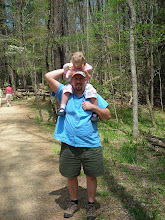Edgard (or Edgar) Victor Achille Charles Varèse was born in Paris on December 22, 1883 but after only a few weeks was sent to be raised by his great-uncle's family in the small town of Villars in Burgundy. There he developed an intense attachment to his grandfather, Claude Cortot, something that would out do anything his parents ever did for him. In fact, from his earliest years his relationship with his father, Henri, was extremely antagonistic, which made Varèse develop an emotion that could be called a life-long hatred. Reclaimed by his parents in 1893, Varèse was forced to relocate with them to Italy. It was here that he had his first real musical lessons, with the long-time director of Turin's conservatory, Giovanni Bolzoni. Never comfoortable with Italy, and given his oppressive home-life, a physical altercation with his father forced the situation and Varèse left home for Paris, in 1903. After being kicked out of the French Army during World War 1, he moved to New York City in 1915 at the age of 33 with thirty-two dollars in his pocket and settled down in the Greenwich Village. He fell in love with sounds of the city which soon became another one of his inspirations. This is also where he wrote works consisting of dissonant harmonies and complex polyphonies and later took American citizenship in 1926. He worked with electronic sounds and it soon became an obsession. He spent the first few years in the United States meeting important contributors to American music, promoting his vision of new electronic music instruments, conducting orchestras, and founding the New Symphony Orchestra. This is where he met Louise Norton and married her in 1918.
In 1927, Varèse contacted Harvey Fletcher, director of acoustical research of Bell Telephone Laboratories, and tried to set-up a studio for the research of electronic music, but his proposal was turned down. In 1932, he offered to work for Bell in exchange for the use of the studio, even sacrificing his career as a composer to find new electronic sounds. Fletcher agreed this time and during the 1930's, Varèse started a series of works based on the use of electronic instruments.
Varèse returned to
Varése was good friend with Debussy who actually encouraged him to be a composer, saying “Rules do not make a work of art. You have the right to compose what you want to, when you want to.” He also encouraged him to look at non-western music for inspiration. Debussy’s encouragement helped Varése encourage other people, like bands of the 80’s. Internet sources say that Varése was a big encouragement to bands like The Beatles, and Pink Floyd. Varèse's music puts an emphasis on timbre and rhythm. He was the inventor of the term "organized sound", encouraging other composers to use this same style of music. His use of new instruments and electronic resources led to his being known as the "Father of Electronic Music" while Henry Miller described him as "The stratospheric Colossus of Sound". Edgard Victor Achille Charles Varése died on November 6, 1965 in

Good article. As soon as Google's webcrawler finds our site, I bet there will be many people doing research on Varese who will be clicking on and reading this article.
ReplyDelete